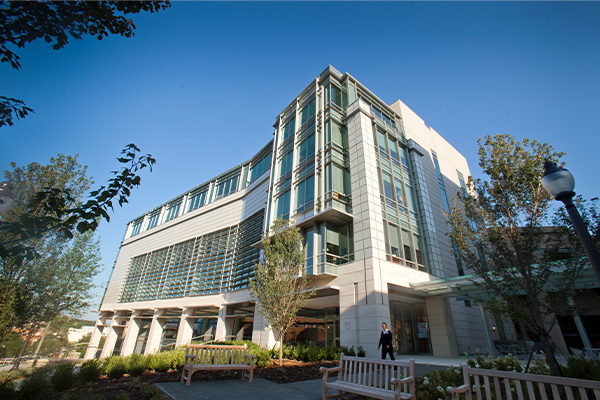
Duke University, in collaboration with the University of North Carolina-Chapel Hill and NC State University, has received a three-year, $3 million grant from the Chan Zuckerberg Initiative (CZI) to map and manipulate the unseen complexities of biological networks, with a focus on kinases.
Their work on kinases, which is a class of proteins, will help researchers better understand cellular organization, nervous system function, and neurological diseases affecting the brain. The living kinome is the complete set of protein kinases encoded in the genome.
The grant to the Research Triangle universities is one of four CZI Exploratory Cell Network grants nationwide announced on Feb. 29.
“To unravel the mysteries of the cell, we need new technologies, and the Exploratory Cell Networks grants support early-stage tech development driven by collaborations across regional labs,” said Stephen Quake, Head of Science at CZI. “These teams are developing novel tools and approaches to understanding, measuring, and engineering cells and molecules that are critical to building virtual cell models — which will open the door to new discoveries about human health and disease.”
Collaboration is a central feature of the Exploratory Cell Networks grants. Duke, UNC, and NC State will use the CZI grant to develop a new suite of tools capable of monitoring and manipulating protein kinases.

"We will expose hidden elements of network organization," said Scott Soderling, PhD, the George Barth Geller Distinguished Professor of Molecular Biology at Duke University School of Medicine and principal investigator of the grant. "This work will pave the way for a new era of predictive biology."
This collaboration brings together Soderling's lab along with the lab of Klaus Hahn, PhD, the Ronald G. Thurman Distinguished Professor of Pharmacology at UNC-Chapel Hill, and the lab of Albert Keung, PhD, associate professor of chemical and biomolecular engineering and Goodnight Distinguished Scholar at NC State.
“The properties of a cell or organism, its function, and what goes awry in disease are all really dependent on how the parts get put together. That’s what’s hidden to us right now,” Keung said.
“Our combined skills in biosensors, proteomics, and synthetic biology form the backbone of this initiative," Soderling said.
Understanding the relationships within the kinome has important implications for health and disease as kinases are the second largest targets for therapeutic drugs.
"This project could lead to significant advancements in the diagnosis and treatment of neurological disorders and other diseases linked to kinase signaling," Soderling said.
The Chan Zuckerberg Initiative supports the science and technology that will make it possible to cure, prevent, or manage all diseases by the end of the 21ˢᵗ century. The foundation fosters collaboration between scientists and engineers, develops new technologies, and builds support for basic scientific research.